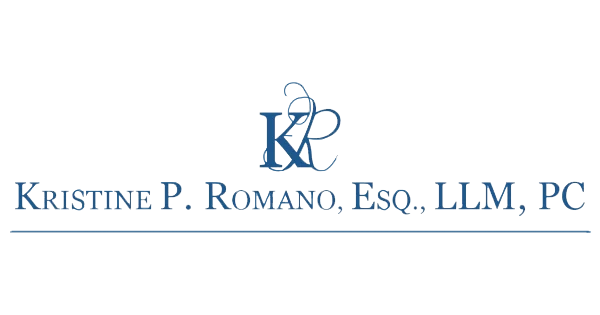Protecting Our Elders: Awareness and Prevention of Elder Abuse
Legal Planning Can Help Prevent Elder Abuse
Each year on June 15, communities around the world observe World Elder Abuse Awareness Day to shed light on a troubling issue that too often remains hidden—elder abuse. For many families, this day serves as an important reminder to check in on elderly loved ones, stay vigilant for signs of mistreatment, and understand how proactive planning with an elder care attorney can help prevent abuse.
What Is Elder Abuse, and Why Is It a Growing Concern?
Elder abuse refers to the mistreatment of adults aged 60 and older, and it can take many forms—physical, emotional, financial, sexual, or even neglect and self-neglect. Often, the abuser is someone the elderly person trusts: a caregiver, a family member, or even a neighbor. Sadly, abuse is on the rise as our population ages, and cases are often underreported because victims feel ashamed or afraid to speak up.
According to the National Council on Aging, approximately one in ten older adults in the U.S. has experienced some form of elder abuse. In Massachusetts, adults aged 60+ who live in the community—not long-term care settings—can access Adult Protective Services if abuse is suspected.
The Most Common Forms of Abuse in Natick, MA
Families in Natick should be especially aware of self-neglect, which is the most common form of elder abuse in our state. This occurs when an older adult can no longer care for themselves—forgetting medications, neglecting hygiene, or mismanaging finances. Other troubling types include:
- Caregiver neglect, such as withholding medication or supervision
- Financial exploitation, including scams or unauthorized use of assets
- Emotional abuse, like intimidation or isolation
- Physical or sexual abuse, though less common, still devastating
Warning Signs You Shouldn’t Ignore
If you’re concerned about an older family member or friend in Natick, look out for signs like unexplained bruises, poor hygiene, sudden financial trouble, or emotional withdrawal. Sometimes the signs are subtle—missed appointments, confusion over bills, or fearfulness around certain people.
Recognizing the signs of elder abuse is crucial for prevention. Some common warning signs include:
- Unexplained injuries or bruises
- Sudden changes in financial situation
- Withdrawal from normal activities
- Poor hygiene or living conditions
- Fear or anxiety around certain individuals
Families often report a sense that something is “off,” even if they can’t pinpoint it. Trust that instinct. A change in personality, a sudden shift in routines, or unusual behavior may be a call for help.
How can Elder Law Help Protect Seniors?
Early legal planning with an experienced elder care attorney is one of the most effective tools we have for preventing elder abuse.
Key documents—like powers of attorney, healthcare proxies, wills, and trusts—help ensure that decisions about an older adult’s finances, healthcare, and daily care are made by trustworthy individuals. Without these legal protections in place, elders may be more vulnerable to financial manipulation or poor caregiving.
For example, assigning a durable power of attorney allows a chosen individual to manage financial matters on the elder’s behalf, reducing the risk of exploitation by others. Similarly, setting up a living trust can keep assets safe and out of reach from unscrupulous individuals.
Creating a Safe and Supportive Environment for Elderly Clients
At Kristine Romano Law, we take time to walk our clients through each step of the estate planning process. Our clients often mention how relieved they feel after finally putting their documents in order, and how supported they feel by our compassionate and knowledgeable team.
One recent client shared, “They made the entire experience of learning, deciding, and producing a legal document an experience that took the dread out of the process and gave me peace of mind.” That’s exactly what thoughtful legal planning should feel like.
Preventing Elder Abuse Through Community and Connection
Legal documents are essential, but they are just one part of prevention. Staying connected to elderly loved ones is equally important. Isolation increases the risk of abuse, while frequent visits, check-ins, and community involvement help build a protective circle.
Encourage older adults to stay active, attend local events, and remain engaged with family and friends. In Natick, community centers, religious organizations, and support groups can all play a role in keeping elders connected and safer.
How to Report Elder Abuse
If you suspect abuse, you have options. In Massachusetts, you can report elder abuse 24/7 by calling (800) 922-2275 or filing a report online through the Executive Office of Aging & Independence. You can make a report anonymously, and if the case qualifies, a local caseworker will be assigned to investigate and provide assistance.
Even if you're unsure, it's always better to make the call. Your action could be the first step in protecting someone from further harm.
Speak with an Elder Care Attorney—We’re Here to Help
Taking steps today can offer security for tomorrow. If you or a loved one needs help setting up a legal plan or reviewing existing documents,
call (508) 393-0500 to schedule a consultation with our team. As elder care attorneys serving Northborough, Natick & Southborough, MA, we provide guidance that respects your values, preserves your dignity, and protects your future. At Kristine Romano Law, we combine professionalism with a welcoming, client-first approach, making sure you feel heard, supported, and empowered every step of the way.
References: Executive Office of Aging & Independence of the Commonwealth of Massachusetts (2025)
"Report Abuse of Adults Aged 60+"
and
NCOA (National Council on Aging) (Feb. 23, 2021)
"Get the Facts on Elder Abuse"



